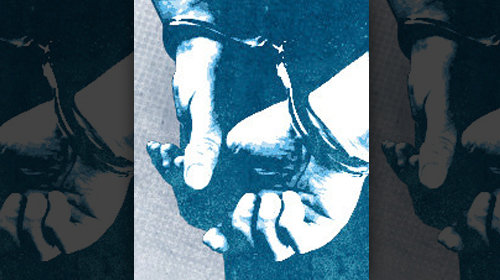
Today, the U.S. has the highest incarceration rate of any country in the world. With over 2.3 million men and women living behind bars, our imprisonment rate is the highest it’s ever been in U.S. history. And yet, our criminal justice system has failed on every count: public safety, fairness and cost-effectiveness. Across the country, the criminal justice reform conversation is heating up. Each week, we feature our some of the most exciting and relevant news in overincarceration discourse that we’ve spotted from the previous week. Check back weekly for our top picks.
First, the good news. Below are some brave and vital efforts to dial back overly zealous and less-than-smart policies that lead to overincarceration:
Vermont Bill Would Require Judges to be Informed of a Sentence’s Cost
Vermont State Senator Tim Ashe recently proposed legislation that would require Vermont judges to consider the cost of a sentence before handing down jail time. The bill, S.1, would still allow judges to decide whether the information will influence their sentencing decisions. But with the annual cost of incarcerating an inmate in Vermont at $45,000, Senate Judiciary Committee chairman Dick Sears said judges at least ought to be aware of the financial consequences of their decisions.
In Hawaii, Marijuana Legalization Receives Strong Support in Both Chambers
Hawaii’s House Speaker and House Majority Leader introduced a bill last Friday to legalize the possession of up to an ounce of marijuana by people aged 21 years or older. Meanwhile, nine lawmakers have co-sponsored a similar bill in the state Senate. Senator Kalani English, a Democrat who introduced the Senate bill, said he thinks the initiative has a good chance of passing the state Senate. The bills follow a recent public opinion poll in which 57 percent of respondents favored legalization.
Maryland Governor Scraps Plan for New Youth Jail
In Baltimore, roughly 50 juveniles charged as adults — facing charges for crimes such as assault, carjacking and murder — are incarcerated daily along with the city's adult offenders while they await trial. The law requires that juveniles and adults be separated, and for a long time, the state’s plan was to build a large new facility to house its juvenile population. Instead, Governor O’Malley scrapped that plan and introduced a policy shift that will allow a portion of the youths charged as adults to stay in the city's juvenile facility while they petition to have their cases sent to the juvenile system. The city will also build a treatment facility where youth can receive education, mental health therapy and substance abuse counseling, among other services. What’s the take from the Sun’s editorial board? “The O'Malley administration's decision to scrap its plans to build a $70 million youth jail in Baltimore is a major win for the city and its youth.”
And second, a couple important things to watch:
Lawsuit Claims Atlanta P.D. had Arrest Quotas, Encouraged Public Strip Searches
A recent lawsuit claims that Atlanta’s Police Department condoned and encouraged its officers to conduct illegal public strip searches on suspects. Last week, two former officers named as defendants in the case filed affidavits in which they said pulling down the pants of men in hopes of finding drugs was necessary to meet their quota of daily arrests. The department has long denied having arrest quotas, though it has said officers are expected to meet “performance goals.” Nonetheless, former APD officers Stalone Davis and Cayenne Mayes claim in sworn affidavits that they said that they were reminded before each shift that they had arrest quotas and that officers were promised rewards like pizza or shorter work days if they exceeded their numbers. You can read more about the suit at a second article here.
Indiana House Panel Passes Broad Revisions to State’s Sentencing Laws
Earlier this week, the Indiana House Courts and Criminal Committee voted 13-0 to approve a measure that would significantly revise the state’s criminal code. Here’s a full summary of the bill’s provisions. The bill’s significant changes include: classifying minor theft as a misdemeanor (currently, Indiana is the only state for which theft is a felony no matter how small the stolen item’s value); reducing the “school zone” within which drug sentences are enhanced; and reducing marijuana possession to a misdemeanor. The bill creates a number of new crimes and enhances the severity of existing sentences. The bill now proceeds to the full House for consideration.
Learn more about overincarceration: Sign up for breaking news alerts, follow us on Twitter, and like us on Facebook.

